ジムに関する情報インストラクター情報
Avi-sensei, Tell us about the Seminar

Julian interview
Avi-sensei
Tell us about May 6 Seminar
A Deep Dive into “The Seminar Beginners Must Attend!”
Once again, the “Self-Defense Maestro” Mr. Avi Nardia returns to Magagym!
In anticipation of the special seminar on May 6, Magagym instructor Julian Littleton conducts a remote interview with Mr. Avi.
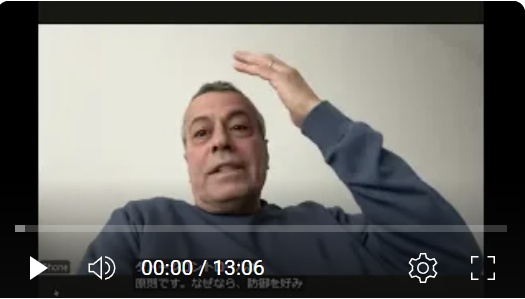
Click here for the video with auto-translated subtitles
Today – on the very day when the early-bird registration deadline (April 6, Sunday) for participation is imminent – we bring you this precious conversation answering questions like “Can beginners join?” and “What exactly will be learned?”
For anyone on the fence about joining the seminar, the answer will surely become clear as you read on!
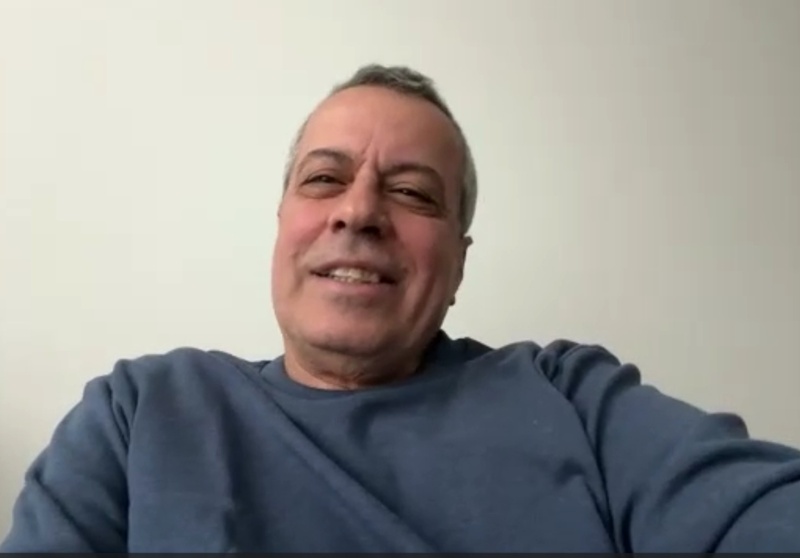
Avi’s Recent Activities
Julian
Avi-sensei, it’s great to see you again! Since your visit to Japan last October, how have you been spending your time?

Mr. Avi
I’ve been called all over the world and have been flying around almost non-stop for work. But I’m happy because I love what I do. When you love your work, you don’t really feel like you’re working.
I visited the Czech Republic, then Bulgaria, followed by Italy and Germany, and this weekend I’m in Slovenia. After taking a short break for Easter, I’ll squeeze in a quick trip and then head to Tokyo.

Julian
It’s wonderful to have you back in Japan! Today, I’d like to ask you about the May 6 seminar – what exactly will it be like? This interview is specially for our Magagym members.
Mr. Avi
I’m delighted to! This time, the main theme is to use everyday items that are easily available to protect yourself from weapon attacks. Imagine walking down the street and suddenly being attacked for no reason whatsoever. In such a case, you would use items like umbrellas, sticks, shoes, keys, or newspapers – anything that can instantly become “your weapon” for self-defense.
We call this “Improvised Weapon.” It’s more accurate to think of these items as “tools to protect yourself” rather than traditional weapons. By using them, you empower yourself and ultimately enhance your self-defense ability. That is the theme of the May 6 seminar.
Beginners are More than Welcome
Julian
That’s fantastic. Some members have asked, “Is this seminar only for those who have been practicing Krav Maga for years?” Can beginners join?
Mr. Avi
Absolutely not – everyone is welcome. In fact, sometimes it’s even better if you have no experience at all. Those who think they already know everything often end up learning the wrong techniques. Beginners start with a clean slate and absorb everything quickly. So this seminar is perfect for both veterans and complete beginners.
Julian
That’s reassuring! So anyone can participate without hesitation. This seminar is divided into three sessions – defense against sticks, improvised weapons, and defense against knives. Let’s briefly break down what each session will cover.

Defense Against Stick-like Weapons
Julian
First, regarding defense against sticks. Do you cover techniques such as unarmed vs. stick, stick vs. stick, or defending yourself using available objects?
Mr. Avi
Yes. In the streets, one of the most common and easily understood attacks involves stick-type weapons – think baseball bats, umbrellas, or anything similar. In this session, we focus on how to deal with such stick-shaped weapons.
If you have an umbrella, for example, your chances of protecting yourself increase whether the attacker uses a knife, a stick, or even attacks unarmed.
While the techniques themselves are important, our emphasis is on learning the underlying mindset – the conceptual framework behind using these objects for self-defense, rather than just one fixed technique.
For example, consider the challenge of “crossing a river.” There are many methods – by boat, by swimming, by parachuting, or by using a rope. Instead of fixating on one method, we focus on the fundamental concept: what is the most appropriate way to cross the river?
Similarly, with sticks, it is crucial to understand their properties and how you can use them for self-defense comprehensively. It’s not just about learning a single stick technique.
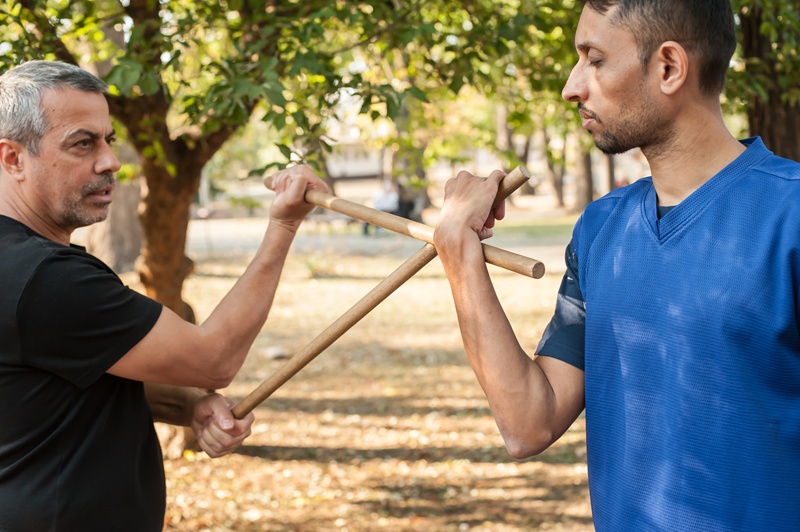
Defense Against Knives
Regarding the concept, let me give you an example using knife attacks. The key idea is how to control the damage. Although it’s best to remain completely uninjured from a knife attack, that is rarely feasible. So, let me ask you directly: if you were to be cut, would it be better to have your hand cut or your neck?
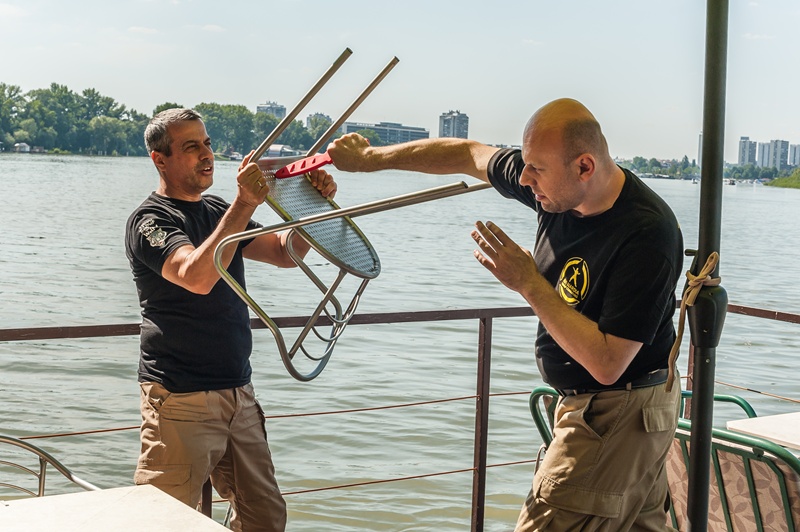
If your neck is cut, you might lose your life before you can be taken to the hospital; however, if your arm is injured, you might survive despite serious injury. In other words, you learn to prioritize—sacrificing your hand to protect your neck. We teach you how to evaluate these dangers and decide on the best course of action, taking into account your abilities and even legal aspects.
Julian
So this relates to the third session on defense against knives, right? Techniques such as knife vs. unarmed, knife vs. stick, or defending with items like bags, chairs, or cones—but not knife vs. knife, correct?
Mr. Avi
That’s right. Everyone participating in the seminar abides by the law, and carrying a knife is illegal in Japan. If you master defending against a knife using your hands and available objects, then even if you ever find yourself forced to use a knife, you can apply the same principles. That’s why learning unarmed and improvised defenses against a knife is our top priority.

Unconventional Weapons
Julian
Understood. Now, regarding the second session: Although the class size is a bit smaller, it is open to everyone. This session covers “unconventional weapons” – for example, substances like date-rape drugs that can be slipped into beverages. These are items you wouldn’t normally think of as weapons, and this session challenges conventional notions of what a weapon is, exploring what kinds of attacks might occur.

Mr. Avi
Exactly. Just a few days ago in Israel, a fitness instructor was arrested for using a date-rape drug. With such tactics on the rise, we will also discuss these methods.
Simple precautions like “never drink a beverage that someone else has opened” can prevent serious trouble. It’s important to understand the broad concept of self-defense.
This seminar will teach you not only self-defense techniques but also the essential “mindset” required for self-defense. It’s about understanding the overall picture rather than just isolated details.
A Broad Perspective on Self-Defense
Julian
This is a great opportunity to broaden our thinking about what can be used as a weapon. I believe our members will find it extremely educational.
Mr. Avi
Absolutely. I have a friend who is known as “gorilla-strong” and has defeated top competitors in kickboxing and Kyokushin karate. However, when he went to Thailand, he was drugged through his drink and ended up being dumped on the street in his underwear—this happened twice.

In other words, no matter how strong you are, a single dose of drugs can completely disarm you—even without the use of a knife or gun. Self-defense isn’t solely about physical strength; there are many factors to be aware of. This is why the broad approach to self-defense, as covered in the second session, is so important.
Julian
We often focus on striking and joint techniques as part of martial arts self-defense, but that alone is not enough.
Mr. Avi
Exactly. In a ring fight, you prepare mentally for a fight, but if you’re enjoying a cherry blossom viewing and are suddenly attacked, you must switch your mindset in an instant. Unlike a regulated match, you don’t know the size difference or have any pre-fight measurements. There are many differences between competitive martial arts and practical self-defense.
Julian
I see. So the three sessions on May 6 – defense against sticks, unconventional attacks, and defense against knives – will be extremely valuable. Our members are really looking forward to it. Lastly, do you have any message for our members?
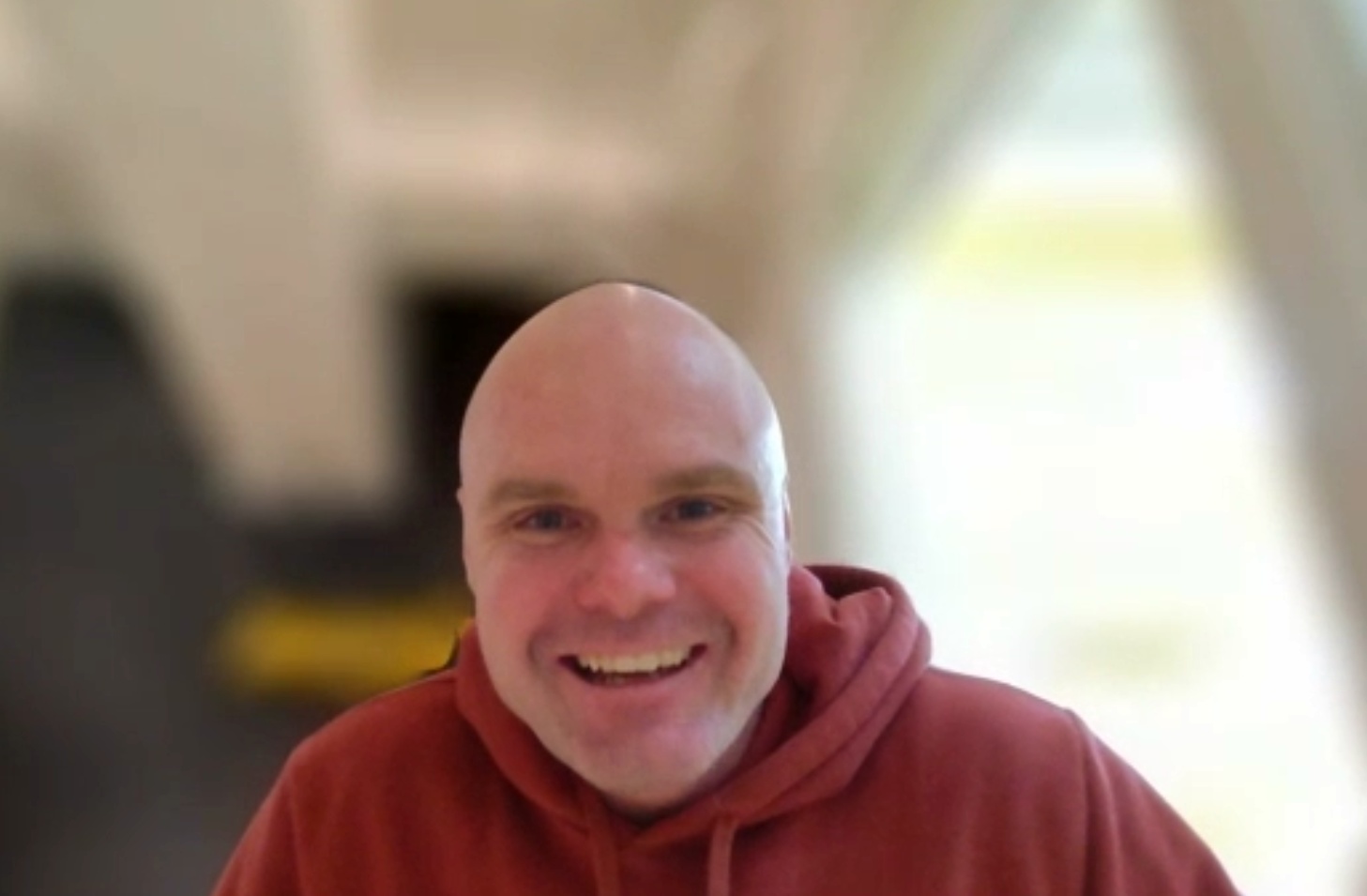
Mr. Avi
I’ve heard some members worry, “Do I have the level to participate in this seminar?” or “Am I even allowed to join?” But honestly, whether you are a veteran or a beginner, it doesn’t matter.
What I teach is unique and different from what you’ve learned before, so it will be useful for complete beginners as well as for those with extensive experience.
I just returned from Italy, and the same situation was present there. It felt like a big orchestra where everyone played together—experienced individuals helped beginners, balancing the energy.
There was one very large participant who initially had a somewhat arrogant attitude, thinking “I’m stronger because I’m big,” especially since I’m small. He had trained in various styles and even run his own dojo.
When I demonstrated a few movements, he was shocked and then realized, “Wow, the level is completely different” (laughs).
What I teach is entirely new even for someone like him. Even if he has managed a dojo for years, here he must start from scratch.
At the seminar I held in Italy last weekend, there were beginners as well as people who run dojos or gyms, and everyone learned something new. Because it’s all new, it’s a first for everyone. Even I am a beginner when I start learning something new in that field.
Julian
That’s great. It’s reassuring to know that no matter what level you are, you can learn something new. Whether you’re advanced or just starting out, everyone can begin at a level that suits them.
Mr. Avi
Exactly. Many worry that the seminar will be painful or too strenuous, but our goal is to share knowledge and teach in a fun and engaging way – not to cause pain.
I highly recommend that participants take notes. Even though I’m not a great artist, I often take notes and sketch simple illustrations during the seminar.
If there’s anything you don’t understand, please don’t hesitate to say, “I don’t understand.” That’s completely fine because understanding is what matters most.
Julian
Wonderful. It sounds like an amazing opportunity. Knowing that you can freely take notes and ask any questions really puts everyone at ease.
Mr. Avi
I’m truly looking forward to meeting you all, and I hope that when I arrive, the cherry blossoms are still in bloom so you can enjoy them…
Mr. Avi
Yes, and if they have fallen, then let’s look forward to next year (laughs).









